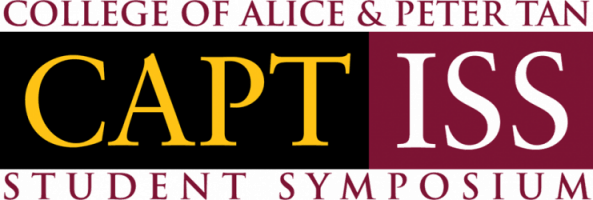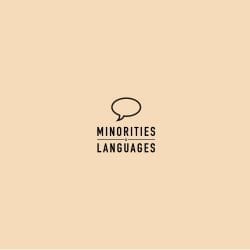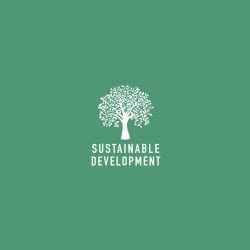CAPTISS 2018
Sharing Spaces:
Diverse Approaches and Communities
CAPTISS 2018 saw over 400 attendees throughout the day with over 60 presenters at our 9 panels and poster sessions. We welcomed people from CAPT, the wider NUS community, other tertiary institutions, NGOs, government agencies and various community-based organisations from both Singapore and overseas.
Our keynote speakers, Ms Yin Myo Su, Founder of the Inle Heritage Foundation, and Ms Anthea Ong, Founder of Hush, The Silent Teabar, kicked off the symposium with their insightful stories on how they implemented the concept of sharing spaces in their work.
Throughout the day, we showcased over 40 projects and organisations that helped us understand the concept of Sharing Spaces from different angles. We also saw the return of the Human Library which was, once again, well-attended with over 60 participants and 13 “books”. Furthermore, as a testament to the potential of CAPTISS being a space for innovation, an Art Gallery and an Applied Theatre session was also held to give attendees the chance to interact with thought-provoking art and cultivate empathy.
A huge thank you goes out to all our participants, presenters, volunteers and committee members. We couldn’t have done it without you!
Collaboration
Heritage Conservation
Gender Issues
Exploring Inequalities
Arts
Health and Well-Being
Challenging Stigma
Environment
Children and Youth
Children and Youth
The panel raised awareness on the population of vulnerable children in Singapore and abroad. Using successful projects as examples, speakers shared about how we as youth can effectively and meaningfully contribute to improving the well-being of these children through both direct and indirect action.
Participants learned about the importance of helping vulnerable youth get out of the cycle of abuse and hurt. They also learned that they should make use of their current skillset and value-add to existing programs, as creating new programs is not always the right solution.
Special Needs

The Special Needs panel aimed to advocate the importance of inclusiveness and awareness for Persons with Disabilities (PwD). Youth efforts have shown how people are trying to make our society more thoughtful and inclusive by trying to create a communal space for everyone in Singapore.
Participants learned that they need to be patient and open-minded when starting a social cause project, as it is certainly not easy! They also learned that they should keep the physical, behavioural, intellectual and latent needs of the community in mind, as well as the fact that not all problems can be solved by technology.
Mental Health Advocacy

The panel highlighted the general lack of awareness of mental illness among youth, as well as the different ways in which student-led organizations have made a difference in the local youth mental health landscape.
Participants learned that one-on-one interaction is a good way to dispel stigma against mental health issue sufferers, as it challenges pre-conceived notions and builds trust. In addition, they also learned that each individual has the ability to make a difference – by stepping out and talking about it, and reaching out.
Human Trafficking
The panel delved into the causes and consequences of human trafficking, bringing to light the complexity of this issue. It discussed how we, as youth, can do our part in improving the situation while human trafficking is perpetrated by several industries,
Participants learned that they can make a difference by making the issue more personal and intimate, without pushing responsibility to certain groups of people, by modelling positive behaviour and going against the norm, and by giving people something real that they can do to support the cause.
Social Enterprise
The Social Enterprise panel aimed to show different project initiatives for a good cause by youth across Asia. Here, the presenters talked about their main inspirations, the challenges they encountered on their entrepreneurship journey, and how they managed to overcome them.
Participants learned that starting a social enterprise requires both a thorough knowledge of the community’s needs and assets, and the courage to take a leap of faith. They also learned that in order to create sustainable impact, they need to co-create solutions with the community.
Measuring Outcomes
The panel explored measuring the success, sustainability and effectiveness of projects in order to fully utilize and allocate limited resources efficiently. Experts shed light on a relatively unknown topic and highlighted its importance to people who are unaware.
Participants learned the importance of conceptualizing abstract outcomes by turning them into specific goals, and collecting data on those. They also learned about the importance of having an attitude that encourages constant improvement in developing community projects.
Minorities and Languages
The panel explored the development and treatment of minority languages in various countries, examining history, current speakers and governmental policies. Experts provided us with an insight into a basic aspect of our lives that is a complex issue for others.
Participants learned about how government policy as well as social attitudes can greatly influence how a language is viewed and used in everyday life, as well as the importance of individual speakers in keeping endangered languages alive.
Migrants

The Migrants panel aimed to raise awareness of the unique issues faced by the various sub-groups of migrant communities in Singapore, as well as the methods of engagement which youth have adopted for their projects.
Participants learned about the importance of making participation meaningful for both migrants and volunteers by constantly engaging stakeholders, in order to enhance the sustainability of the project.
Health
Sustainable Development
The panel discussed how the 17 Sustainable Development Goals (SDGs) can be applied to our daily lives through the sharing of both local and overseas projects. These projects showed us how we could then change our lifestyles to be in line with the SDGs.
Participants learned not to underestimate the effect that small changes can have, so long as they are focused toward the final goal.




















